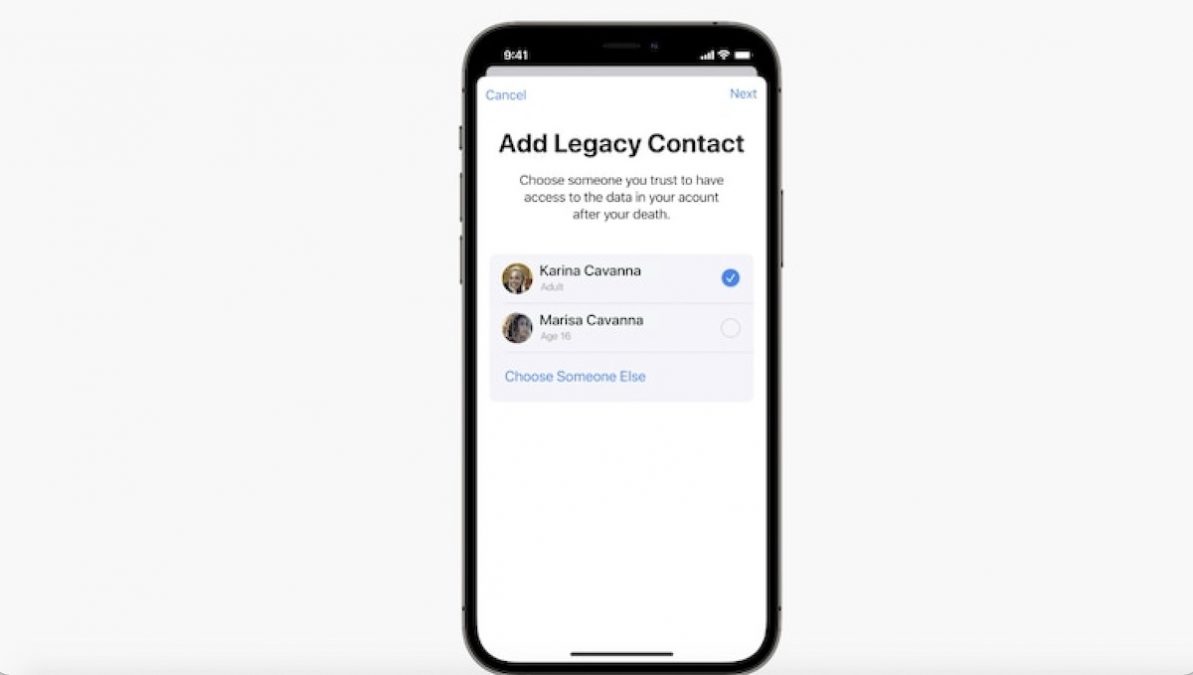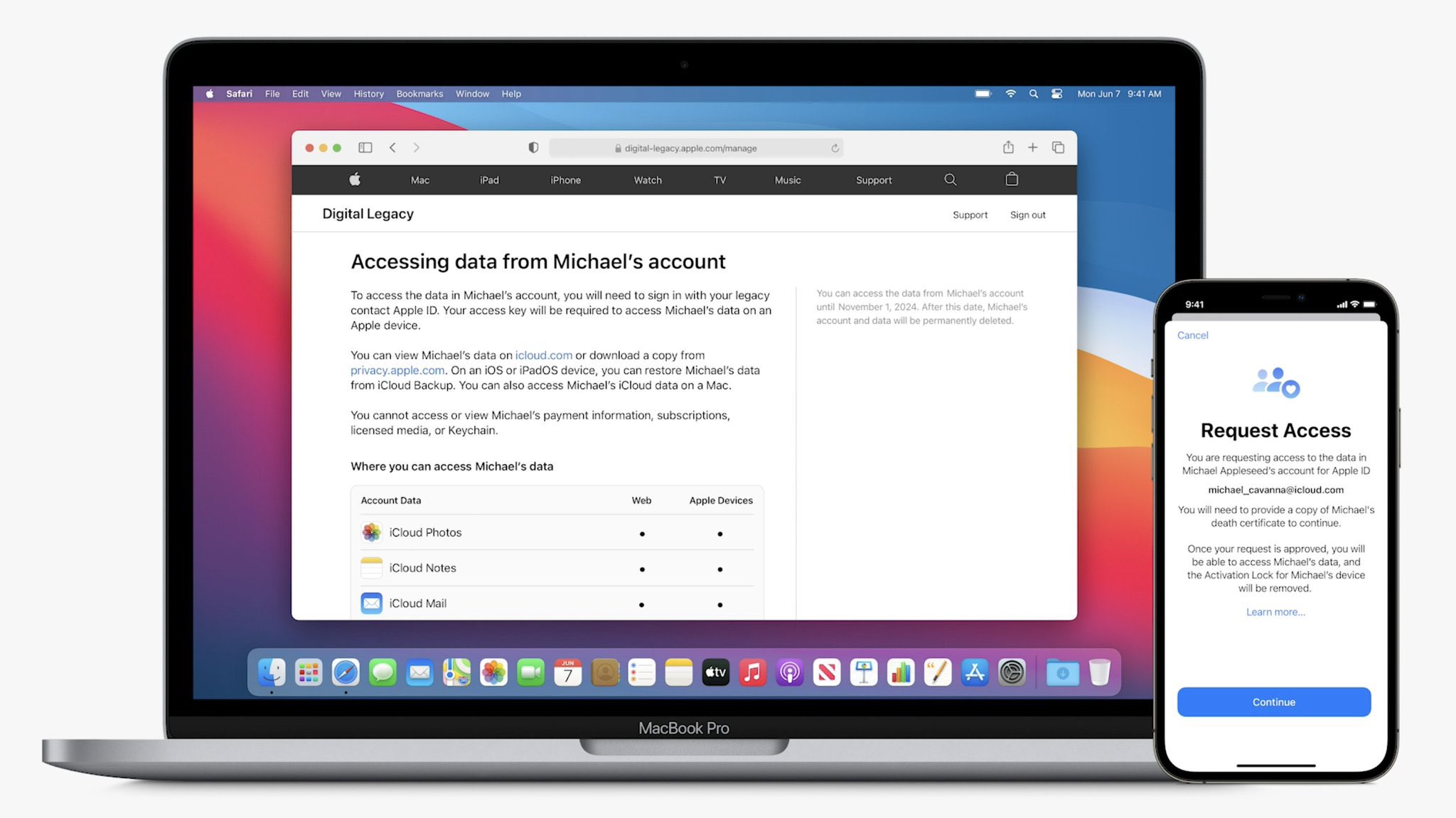© 2000-2023 - Enkey Magazine - All rights reserved
ENKEY SNC - VAT ID IT03202450924 / REA Code CA253701 - Phone. 078162719
Apple recentely presented Digital Legacy, a legacy with which we will be able to designate an heir for our account Apple. He will be so able to access to our personal datas in case of death. Let’s discover together what it’s.
The presentation of Digital Legacy
The new arrives in occassion of the WWDC, the Apple World Wide Developers Conference, the conference of the developers organized by Apple.

During the event, which took place from the 7th to the 11st of june, was presented an upgrade of the operating system iOS 15, which will include even the function Digital Legacy.
The service, that many platforms, like Facebook, already have, will allow the user to designate one of more heirs that will have the possibility, in case of death, to access to all or to some of the contents of the account Apple.
The service isn’t active yet and Cupertino let us know that it will be available starting from the next autumn, before it will be available for the american users and, then, for all the world.
How will Digital Legacy work?
Digital Legacy will be as a service that will give to the user the possibility to designate an heir for our own account Apple. By the way, this heir won’t access to all the informations, but only to the ones in the Cloud.
The heir, for example, won’t be able to see the payment receipts or to the details of the credit cards. This aspect is essential. Digital Legacy doesn’t have any giuridical validity and so Apple can’t give to the heir the access to the capital sphere of the death user.
The Legacy Contacts (tha’t how the digital heirs are called) will have the access to the pictures, the notes and the emails.
What will have to do the heir in case of death?
In case of death of the user the legacy contacts will have access to some of the personal informations stored inside the server.
But what will have to do the heir to access?

First of all, the contact will have to demonstrate his own identity and send to Apple the death certificate of the user. The procedure, infact, won’t be automatic, but it must be verified.
Once verified the death and the identity of the heir, he will receive a temporary Apple ID, that will allow him to access to the sensitive datas of the death person.
Is Digital Legacy legal?
The one of the heritage is a very complex argument. Even if it’s only about pictures, mails and some documents. In reality the one that is inside our smartphone, often, for us, is much more important that what we can find in the drawer.
Inside our smartphone there is all our life and choose a person that can access to it in case of death is as much important as complex.
Especially under the legal point of view. We know, infact, how much complex can be the management of an heritage, any kind of it. Often it brings to break ups inside the families.
For this reason the Digital Legacy of Apple is an argument that must carefully faced. Firstly, every country has is own laws in case of death. Even though Apple was clear about the fact that the Legacy Contacts won’t have the access to the economic things stored inside the smartphone, this function might find some legal stops.
Infact, at the moment, the only ones that accepted the function were the United States of America. From there the spreading of the Digital Legacy will start. At the moment, anyway, there isn’t any agreement with the European Union and we don’t know if the function will be ever available here too.
Not only Apple
Apple isn’t the first one that though to the heritage of its users. The first one to introduce a similar function was Facebook, that allowed the relatives of the death person to “inherit” their account.
Apple, as well as Facebook, introduced this function because the users feel the need of it. As we said inside our smartphone there is now all of our life and many relatives asked Apple to unlock the iPhones of their dear deaths.
But Apple wasn’t able to do it without the permission of the death person. Now the users will be able to designate the best heir to which leave the contents of their smartphone.
This post is also available in:
 Italiano
Italiano

